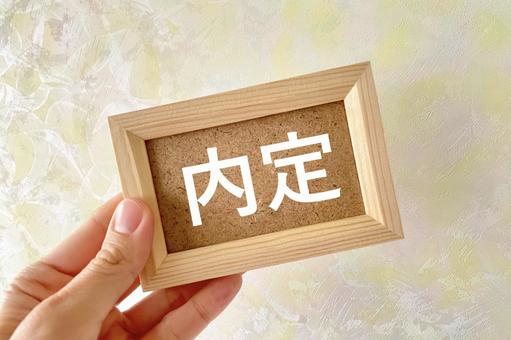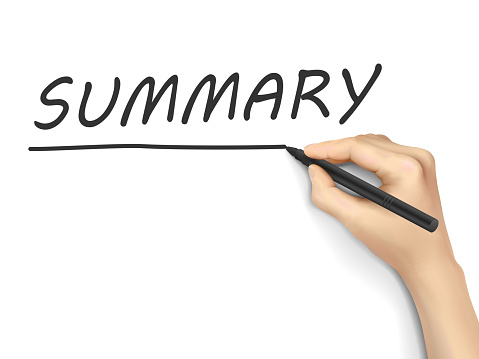2023.1.10
How to pass a Japanese interview and how to communicate

The interview time with Japanese companies is short, approximately one hour.
Since the company introduction is given about 15 minutes, you will only have 30 minutes to present yourself.
It is very difficult to convey your experience, skills, and how you will contribute to the company in a limited time period of one hour.
In addition, if you are a foreigner, it is even more difficult because you have to appeal in Japanese.
In most Japanese companies, when hiring foreignerst, N2 or higher Japanese language proficiency is required.
However, even if you do not have N2, I will give you a method to appeal to the interviewers and get a job offer.
I will also teach you how to convey your own message clearly, so please read it through to the end.
N1 is not necessary for interview interviews

What Japanese companies are looking for is not N1 level Japanese language proficiency.
Communication skills are a must.
Even if you have N1, it is meaningless if you cannot communicate your experience and skills to the other person.
The objective is to convey what you want to say to the other person, and taking N1 is just one of the means to achieve this objective.
Please be careful not to reverse the purpose of the means and the goal.
This is important, so I will repeat it again.
What is important is not the qualification of N1, but to communicate how your experience and skills can contribute to a new company.
So, how can we communicate what we want to communicate in a way that is easy to understand?
The most important thing is to learn how to speak in a way that Japanese people often use in business situations.
This will increase your chances of receiving a job offer because you will be able to convey how you can apply your past experience to the company.
In fact, even if a foreigner with N1 is accepted, he or she will fail the interview if the way he or she communicates is not good.
The reason for this is that your way of communicating is not very useful to Japanese people, and is difficult for Japanese people to understand.
Conversely, even if you are at the N4 level, if you have at least five years of work experience and have mastered the way Japanese people often use to communicate, you will be able to pass the interview.
What is the way of speaking that is often used by Japanese people?

If what you want to convey is not easily understood by Japanese people, it is not because your Japanese language ability is low.
It is simply that your way of communicating is unfamiliar to Japanese people.
So don’t worry too much.
From now on, I will teach you how to communicate in a way that Japanese people often use in business situations.
Let me give you an example of a motivation for applying for a job.
なぜ当社を応募しましたか?
Why did you apply for our company?
The best way to communicate clearly to the other party is to speak in this order.
This way of speaking makes things much easier to understand.
①Conclusion (convey what you want to convey first)
②Reason (telling reason why you think so)
③Specific examples (use examples to help you visualize the situation)
④Conclusion (once and for all, convey the most important message at the end)
I will explain each one in detail.
①Give a short and concise message of your conclusion (the most important message you want to convey)
First, give a short, simple and brief explanation of why you want to work for the company.
Please be careful not to make it too long.
The shorter the text, the easier it is to understand.
私のこれまでの経験が、御社で即戦力として貢献できるからです。
I would like to work for your company because I believe that my past experience will contribute to your company as an immediate asset.
The important thing to remember is that
If you don’t hire me, you will lose money!
This means that we must convey the message that we are committed to the company’s success.
Continuing on, here is a bad example of a motivation for applying for a job.
The subject is often about yourself, and it does not convey well how you can contribute to the company.
For example, the
御社はトップシェアの商品を開発しています。なので私も一緒に世界で使われる商品を開発したいです。
Your company is developing products that have a top share of the market.Therefore, I would like to work with you to develop products that can be used around the world.
You have a reason for wanting to join the company, but the reason for applying is your own self-centeredness.
I understand that you want to join the company and develop product lines, but you have not been able to explain how you will contribute to the company and what the benefits are.
What are the benefits to the company of hiring me?
It is even better if you can convey how the company will benefit by employing me.
②Reason (give reason as to why you think so)
Logically explain why your experience will contribute to your ability to make an immediate contribution to the company’s success.
When communicating your reasons, keep your message as short and concise as possible.
御社のプロジェクトでの必要なスキルや経験を持っており、その分野で5年以上の経験があるからです。また御社の商品に似た商品開発経験も豊富にあるからです。
I have the necessary skills and experience required for your project, and I have more than five years of experience in the field. I also have a wealth of experience in developing products similar to your company’s products.
In this way, you should clearly convey what kind of experience you have and how you can make use of it.
③Specific examples (use examples to help you visualize the situation)
It is sufficient to convey the conclusion and its rationale, but it will be even more convincing if you also include actual cases or concrete examples.
In practice, provide information that is relevant to the company to which you are applying.
In this example, the reason for the application is that it can contribute to product development and product innovation.
No matter how great an actual example may be, It is meaningless if it is not related to product development.
For example
総務部にいた時は、業務効率を上げて部署での残業を減らしました。
When I was in the General Affairs Department, I improved operational efficiency and reduced overtime work in my department.
Even if you tell like that, the question is a specific example related to product development, so the other party may wonder, “What is this person talking about? Therefore, it is necessary to be careful when answering questions.
Let’s give some concrete examples with actual examples as follows.
現職では市場調査を徹底的に行い、お客様が何を求めているのかを理解して商品を開発した結果、会社の中でもっとも売れた商品になりました。
In my current position, I conduct thorough market research to understand what our customers are looking for, and as a result, we have developed a product that has become the best-selling product in the company.
④Conclusion (once and for all, convey the message you want to convey the most)
Let’s conclude with one last conclusion.
以上の理由で御社に貢献できると思い、志望致しました、
Based on the above reasons, I believe that I can contribute to your company.
This order of communication makes it easier for the other party to understand the message.
Japanese people also communicate in this order in business, so if you have the opportunity, please listen carefully to the content of what Japanese people talk about at conference meetings.
Interview is like playing catch

Here is some advice on how to communicate.
Please be careful not to give too much information in response to a single question.
Communication in an interview is the same as playing catch.
The interviewer will ask you a question as if they throw a ball to you.
Then you answer the questions as if you throw a ball back
If you throw 4 balls back at the interviewer, he/she will not be able to catch any of them, right?
In other words, what you want to say is not being conveyed because you are giving multiple answers to a single question.
In an interview, you have to make your appeal in a limited amount of time, so you tend to convey everything you want to say, but that is too much information, and the interviewer will not be able to understand everything you have to say.
What is your point in the end?
In the end, you will be rejected because of your lack of communication skills.
Bad examples

We will also provide bad examples so that you can compare them with the good ones.
To put a bad example simply
You didn’t answer the interviewer’s question or you provided a lot of unnecessary information in your answer.
First, let’s take a look at a bad example of a motivation for applying for a job.
①If your question is not answered
母国ではデザインエンジニアとして働いてきました。日本でもデザインエンジニアとして働いています。私には5年以上の経験があるので応募しました。
In my home country, I worked as a design engineer.I am working as a design engineer in Japan.I have more than 5 years of experience, so I decided to apply.
②Telling too much unnecessary information is being passed on.
How can I contribute?
This is the case when answering the question, “How can you contribute?
私はこれまで様々な経験をしてきました。今の会社では商品開発担当として、新しいサービスを作りました。その商品が多くのお客様にとても喜ばれ、会社から特別賞をもらいました。
I have had a variety of experiences. At my current company, I am in charge of product development and have created a new service. The product was so well received by many customers that I received a special award from the company.
I understand that you want to emphasize that you are skilled in developing products, but there is so much other information that it is difficult to understand what it is that you want to convey most in the end.
Summary

The Japanese language of foreigners working in Japan is very good.
In order to further convey what you want to convey, please adopt the method of conveying messages that Japanese people use in business situations.
The reason why you cannot communicate in Japanese is not because your level of Japanese is low, but because we Japanese are just not accustomed to your way of communicating.
Let’s review once again how Japanese people talk to each other.
①Conclusion (convey what you want to convey first)
②Reason (give reason as to why you think so)
③Specific examples (use examples to help you visualize the situation)
④Conclusion (once again convey the most important message at the end)
When reporting to a superior at a meeting of a Japanese company, the report should begin with the conclusion of the discussion.
If you talk aimlessly and without a conclusion, you will be asked, “What is the conclusion?
It is important to study for N2 or above to obtain a certification, but it is also important to study together how to communicate in a way that is commonly used by Japanese people.
By simply changing the way you communicate, you will be able to get your message across better to the other person and further improve your communication skills.
It is not necessary to be fluent in Japanese.
Even if you can speak Japanese fluently, it is meaningless if you cannot convey what you want to say.
It is OK if you cannot speak Japanese very well as long as you can convey your message to the other party.
If you can convey your message, you do not need to speak fluently or use difficult vocabulary.
Just by changing the way you speak, you can increase your chances of getting a job offer, so please try it out.

